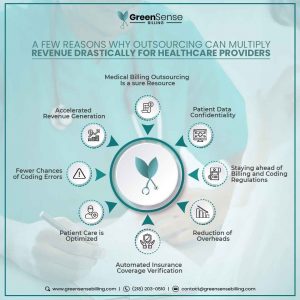When it comes to medical billing, two terms that are often confused are inclusive and bundled billing. Although these concepts seem similar in the first place, they have distinct meanings that can impact your healthcare costs.
In this blog, we’ll break down the key differences between inclusive and bundled in medical billing, helping you navigate the complexities of medical expenses.
Inclusive Billing

Inclusive billing is a billing process that breaks down charges for each service, like consultations or tests, on a clear, itemized bill. This transparent approach ensures patients understand costs, eliminating hidden fees.
Inclusive in medical billing is common in many settings, from routine check-ups to special treatments. In addition, it provides a detailed breakdown of expenses, ensuring that patients can review and verify each service they receive.
Benefits of Inclusive Billing
-
Clarity:
Patients can easily check out their medical expenses without any confusion or ambiguity.
-
Accountability:
Healthcare providers are held accountable for the costs associated with each service.
-
Transparency:
Patients have the opportunity to discuss the necessity and cost of each service with their healthcare provider.
Bundled Billing

The major difference between inclusive and bundled is that bundled billing involves grouping several services or procedures related to a specific medical treatment under one comprehensive charge. Rather than itemizing each service separately, the bill presents a single cost for the entire bundle of services provided during a particular medical encounter. Therefore, bundle billing is often used for procedures or treatments that involve multiple components or steps.
For instance, surgeries frequently employ bundle billing, as they encompass several services, such as anesthesia, surgery fees, and post-operative care, all of which are combined into one total cost.
Benefits of Bundle Billing
-
Simplicity:
Bundle billing simplifies complex procedures by presenting one consolidated cost.
-
Efficiency:
It streamlines billing processes for both healthcare providers and patients.
-
Predictability:
Patients have a better idea of the overall cost upfront, reducing potential surprises.
Key Differences Between Inclusive and Bundled Billing

Following are the major differences between inclusive and bundled in medical billing.
-
Itemization vs. Consolidation:
Inclusive billing itemizes each service, while bundled billing consolidates related services into one charge.
-
Complexity:
Inclusive billing is straightforward, while bundle billing is used for more complex procedures.
-
Transparency vs. Convenience:
Inclusive billing offers transparency, while bundle billing provides convenience.
Which Billing Method Should You Prefer?
The choice between inclusive and bundled billing depends on the type of medical services you provide and your patient’s personal preference. If the patient values knowing the exact cost of each service and prefers a breakdown of expenses in detail, inclusive billing might be the way to go.
On the other hand, if your patients are undergoing a complex medical procedure and would rather have a simplified, all-in-one cost, bundle billing might suit their needs better.
It’s important to note that healthcare providers follow industry-standard practices when it comes to billing. The method they use may depend on the specific treatment or procedure their patients undergo.
Remember that your patients have the right to request a detailed bill, regardless of the billing method, to ensure they understand the charges.
CLICK HERE and find out which billing method suits your practice!
Navigating Medical Bills
Medical billing can be overwhelming, but understanding the difference between inclusive and bundled billing can help patients be better prepared. Ensure that they take the time to review their medical bills carefully, asking questions if they find any discrepancies or are unsure about the charges.
If they have health insurance, make sure they review coverage and how it aligns with the billing method used. In some cases, insurance companies may have specific policies for each billing approach, which could impact your reimbursement.
Ways To Tackle Bundled or Inclusive Denial

- Analyze initial denial, codes, and claims to understand reasons and improve processes.
- Check out if your bills are 100% compliant with HIPAA laws.
- Quantify denials, use data and analytics to pinpoint issues, and involve experts for better compliance.
- Correct denials within a week using an established workflow to track claims efficiently.
- Form a robust team to find solutions, track progress, and identify root causes.
Conclusion
In conclusion, inclusive and bundled billing differ in how they present medical expenses. Inclusive billing itemizes each service, providing transparency, while bundle billing consolidates related services for convenience. Being aware of these distinctions empowers you to make informed decisions about your healthcare and financial well-being.
FAQs

1- What is inclusive billing in medical billing?
Inclusive billing refers to grouping related services into a single charge instead of itemizing them separately.
2- What is bundled billing in medical billing?
Bundled billing involves combining multiple medical services into one comprehensive payment.
3- How are inclusive and bundled billing different?
Inclusive billing combines related services under one charge, while bundled billing combines various services into a single payment.
4- Why do medical providers use inclusive billing?
Inclusive billing streamlines billing processes, simplifies charges, and reduces administrative overhead.
5- Are there specific guidelines for inclusive and bundled billing?
Yes, medical billing guidelines vary by healthcare provider, insurance companies, and regional regulations.
Still have questions? Get in touch with us!



















